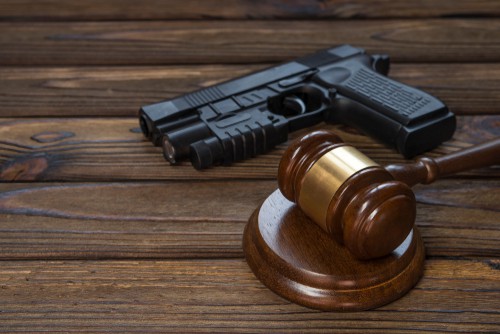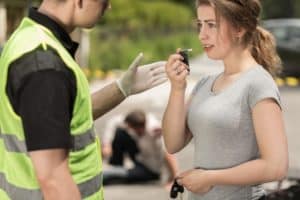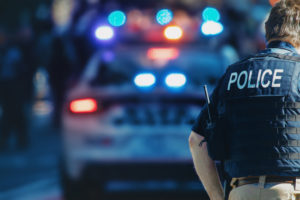
Texas Penal Code Ch 46.03 – Places Weapons Prohibited describes and lists the places you cannot take a “firearm, location-restricted knife, club, or prohibited weapon,” although there are some exceptions. Some places where firearms are prohibited are:
- On the premises of a school or educational institution;
- Anywhere where there is a school-sponsored activity;
- Anywhere on or near a passenger transportation vehicle belonging to a school or educational institution is parked;
- On the premises of a polling place;
- On the premises of any government offices utilized by the court;
- On the premises of a racetrack;
- In any secured area of an airport;
- Within 1,000 feet of a place of execution;
- On the premises of a business with a license to sell alcohol;
- On the premises of a correctional facility;
- On the premises of a hospital, nursing facility, or mental health facility;
- At an amusement park; or
- On the premises where an interscholastic event is being held.
Beginning September 1, 2019, Texas will permit firearms to be carried into places of worship. Additionally, a law will go into effect that gets rid of the cap on school marshals that are allowed to carry a gun in public schools. Yet another new law will also allow handgun owners to carry their concealed firearms without a permit if a disaster has been declared, as reported by CBS.
Prohibited Weapons
All the following weapons are included in the list of prohibited weapons:
- An explosive weapon (unless registered in the National Firearms Registration and Transfer Record maintained by the Bureau of Alcohol, Tobacco, Firearms, and Explosives)
- A machine gun (unless registered in the National Firearms Registration and Transfer Record maintained by the Bureau of Alcohol, Tobacco, Firearms, and Explosives)
- A short-barrel firearm (unless registered in the National Firearms Registration and Transfer Record maintained by the Bureau of Alcohol, Tobacco, Firearms, and Explosives)
- Brass knuckles
- Armor-piercing ammunition
- A chemical-dispensing device
- Zip guns
- A tire deflation device
- Firearm silencer
Penalties and Fines
You can face third-degree felony charges for violating this statute. A third-degree felony comes with a $10,000 fine and between two and 10 years in prison.
With a felony on your record, you will have challenges in the future such as:
- Getting a job
- Getting into a school
- Getting a mortgage or loan
- Getting professional licensure
- Getting a firearm again
The Law Can Be Complex
Given the complexity of the firearm laws in Texas, and the recent changes, getting an attorney to help you navigate the legal system may be helpful. Your attorney will:
- Review your case
- Explain what the consequences of a conviction may be
- Develop a strategic defense based on your circumstances
- Help you understand all your options
- Collect evidence to help develop your defense
- Provide legal guidance throughout the entire process
- Negotiate with the prosecution to lessen your charges or have them dismissed entirely
If you have been charged with violating Texas Penal Code Ch 46.03, hiring an attorney to help you defend against the charges is a good idea. The gun laws in Texas are complicated so it is possible that you may break a gun law unintentionally. If you have been charged with a violation of Texas Penal Code Ch 46.03, call the Law Offices of Randall B. Isenberg at (214) 696-9253. Get the help you deserve today.








